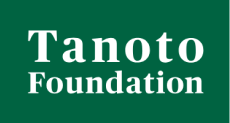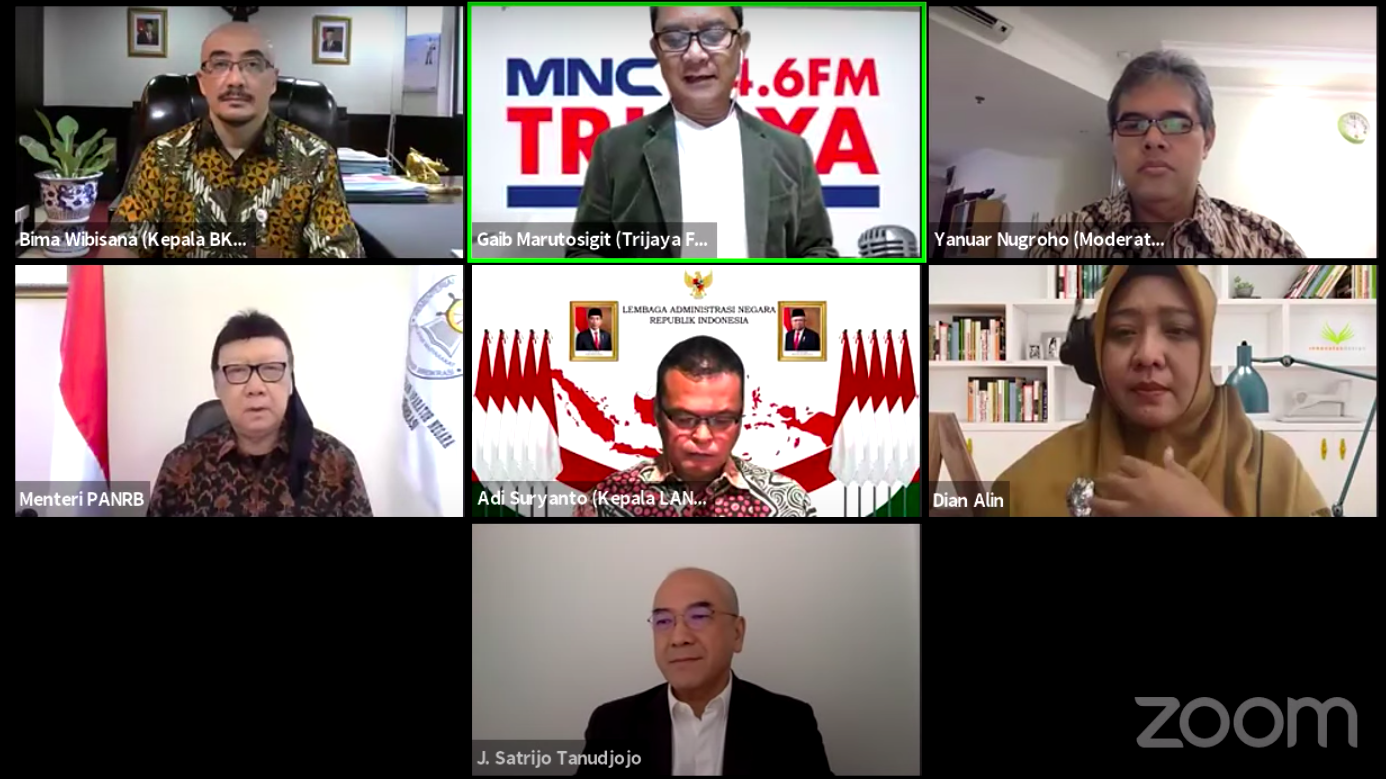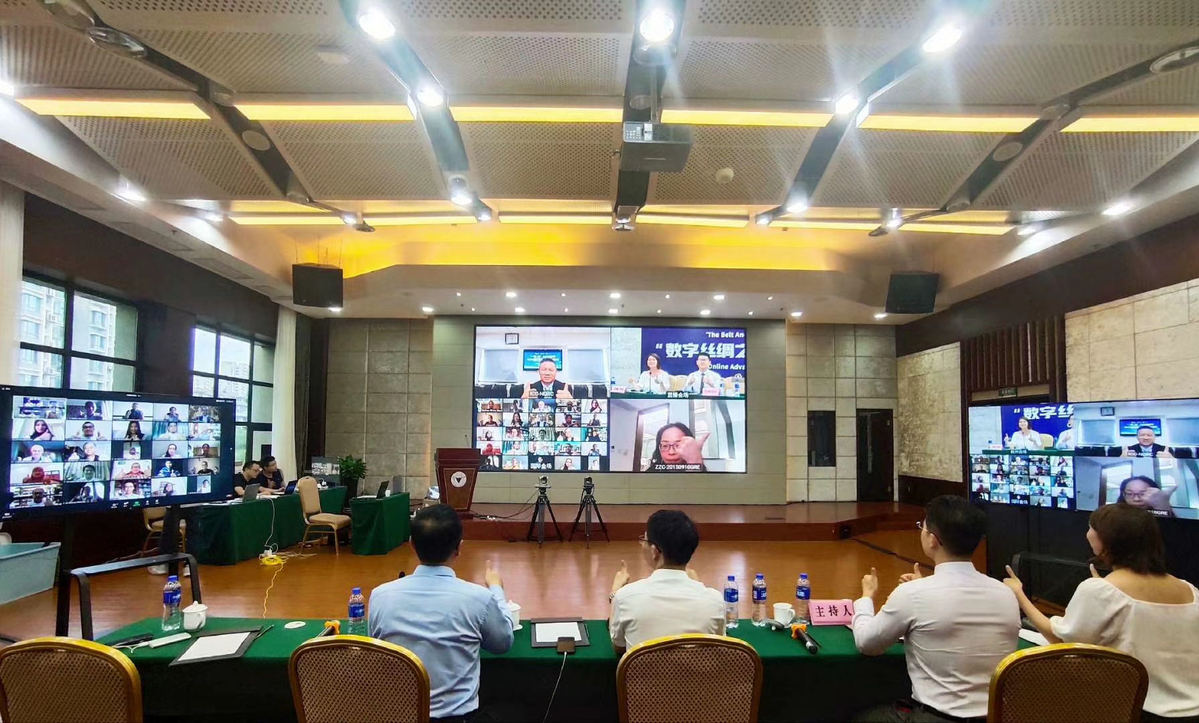Increasing the capabilities of Indonesia’s civil service is more important than ever given the new challenges presented by Covid-19. How to reform Indonesia’s bureaucracy was the subject of a webinar hosted by Tanoto Foundation, an independent family philanthropy organisation founded by Sukanto Tanoto and Tinah Bingei Tanoto in 1981, and the National State Administration of the Republic of Indonesia.
Speaking at the webinar on “The Road to Excellence in Post-Pandemic Civil Servants” were Minister of Administrative Reform and Bureaucracy Reform (PAN-RB) Tjahjo Kumolo as the keynote speaker, Tanoto Foundation Global CEO J. Satrijo Tanudjojo, Head of National State Administration (LAN) Dr. Adi Suryanto, M.Sc, Head of the State Civil Service Body (BKN) Dr. Ir. Bima Haria Wibisana, MSIS, Banggai (Central Sulawesi) Regent, Ir. H. Herwin Yatim, MM, public policy expert from Gadjah Mada University Dr. Agus Heruanto Hadna, M.Sc and moderated by the Advisor of Center for Innovation Policy and Government (CIPG) Yanuar Nugroho, Ph.D.
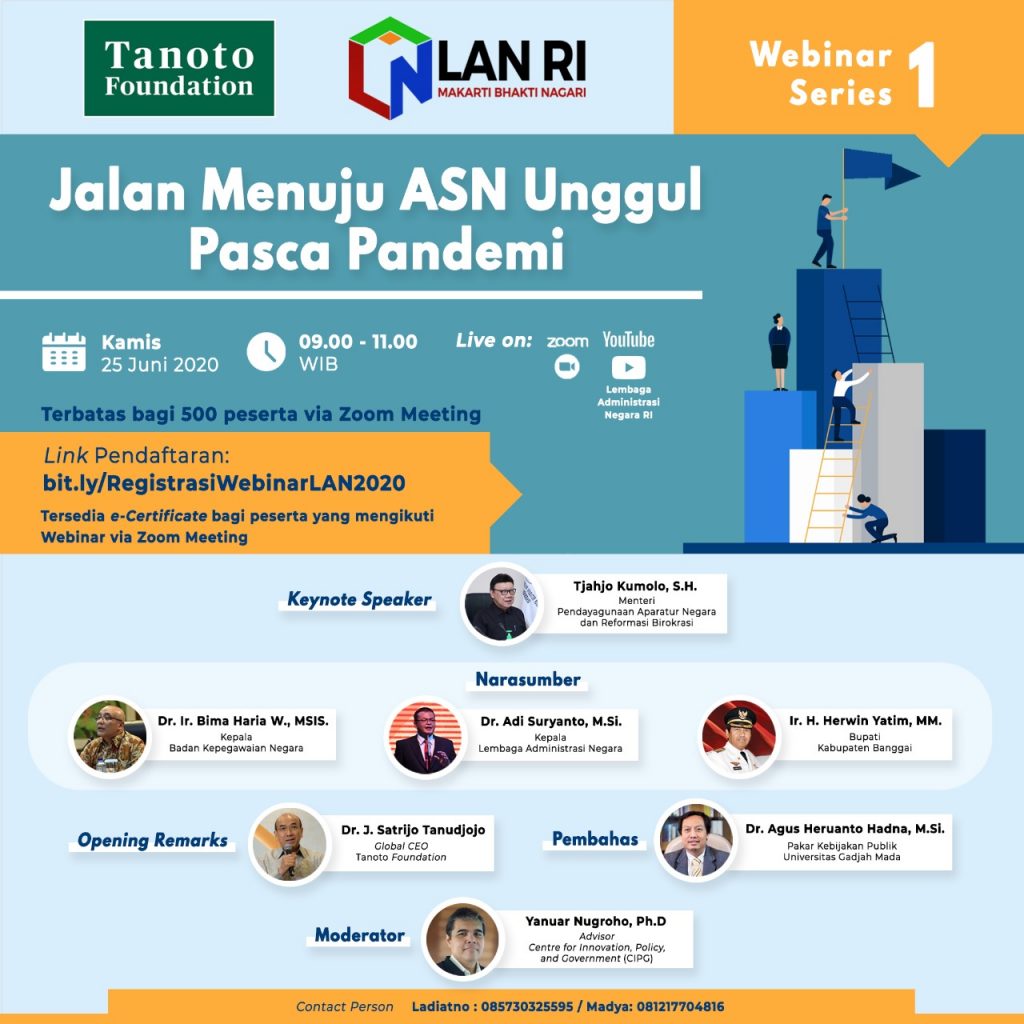
“The Covid-19 pandemic has shown all of us the need to break out of routine habits, apply new patterns and new ways of organizing government,” Tjahjo Kumolo said when opening the event.
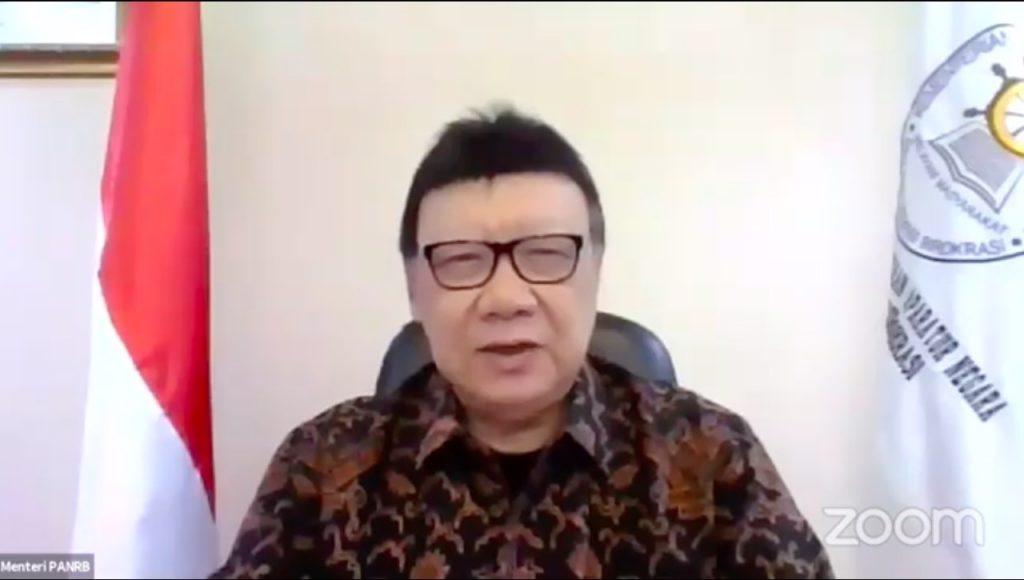
Tjahjo said that even before the Covid-19 pandemic, bureaucracy reform was a necessity. But the pandemic provides impetus to reform the bureaucracy faster. “It is time for us to take a revolutionary and progressive step. Development has been rapid. Covid affects the whole world, the world order will change,” he stressed.
Meanwhile, Satrijo Tanudjojo said that the Covid-19 pandemic should not create distance, but instead strengthen collaboration. “What we have witnessed during the pandemic months, this is not the end of globalization; it is a reaffirmation of the interdependence of nations and people in this world,” Satrijo said.
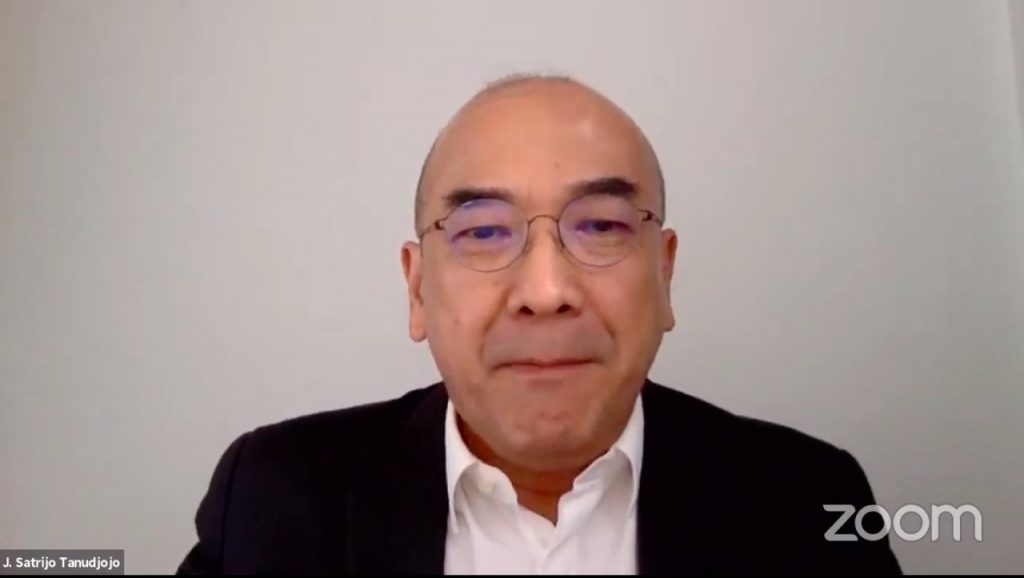
Tanoto Foundation reiterates its commitment in supporting the State Administrative Body and the efforts to improve the capability of public servants. “This webinar is one way to prepare the Civil Servants to improve their public services and accelerate bureaucratic reform in the new normal era,” Satrijo added.
Adi Suryanto alluded to the importance of breaking down silos, citing the existence of around 700 training institutions both at the central level and in the regions that work independently.
“It’s time for governmental education institutions to exchange information and learning. We are currently developing the Civil Servants Corporate University platform and ‘ASN Unggul’ digital applications to enhance their capabilities,” Adi explained.
This was the first of four webinars between Tanoto Foundation and the State Administrative Body. To download the speakers’ presentation, click the following link: http://bit.ly/BahanWebinarSeriesLAN1

